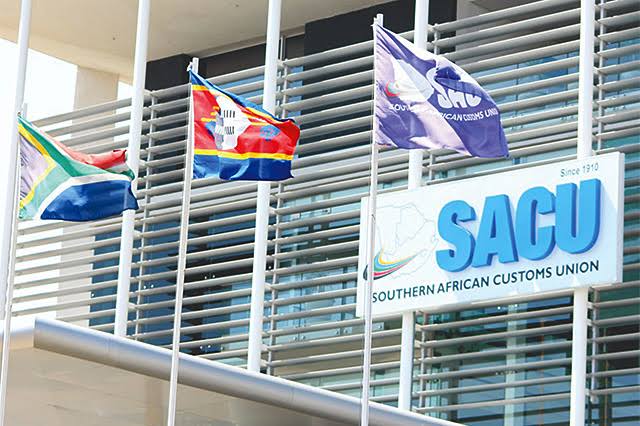The Southern African Customs Union (SACU) Council of Ministers held its 52nd ordinary session on Wednesday in Windhoek, Namibia, to confront mounting trade uncertainties and a dimming global economic outlook. The high-level gathering brought together ministers from the five SACU member states—Botswana, Eswatini, Lesotho, Namibia, and South Africa—at a time of significant geopolitical and economic shifts.
Opening the session, Namibia’s Minister of Finance and current chair of the SACU Council, Ericah Shafudah, emphasized the urgency of the discussions. She described the moment as critical, citing growing external challenges that demand coordinated responses. “This period poses significant challenges for SACU,” Shafudah remarked, highlighting that the union must carefully navigate an evolving international trade environment while safeguarding regional economic stability.
One of the most pressing topics on the agenda was the African Growth and Opportunity Act (AGOA), a U.S. trade initiative that grants eligible African countries duty-free access to the American market for thousands of products. AGOA has played a pivotal role in fostering export-driven growth, creating jobs, and boosting foreign exchange earnings for SACU member states. However, with the agreement set to expire in September, its future remains uncertain.
Shafudah stressed the importance of AGOA’s renewal and pointed to ongoing diplomatic efforts. “We believe our Trade Ministers, through continued bilateral engagement with the United States, will advocate effectively for AGOA’s extension,” she said. The SACU Council is pushing for a longer-term agreement that provides predictability and security for the region’s exporters.
The ministers also examined broader global risks, including geopolitical tensions in the Middle East and Eastern Europe, which are driving up energy prices and stoking economic uncertainty. “These tensions could have cascading effects on our economies,” Shafudah warned, explaining that the ripple effects of these conflicts could disrupt supply chains and undermine regional growth.
In support of her remarks, Shafudah referenced the latest World Economic Outlook, which paints a sobering picture of slowing global momentum. The International Monetary Fund projects global economic growth to decelerate to 2.8% in 2025, with only a modest improvement to 3% in 2026. For emerging markets and developing economies, the forecast has been revised downward to 3.7% for 2025, from 4.3% in 2024. Sub-Saharan Africa is expected to follow suit, with growth dipping from 4% in 2024 to 3.8% in 2025.
Closer to home, SACU’s average weighted growth rate is expected to hover around 2% this year—a figure that underscores the need for structural reforms and targeted investment. Against this backdrop, ministers discussed strategies for enhancing regional resilience and accelerating the implementation of SACU’s 2022–2027 Strategic Plan.
A key priority in that plan is the development of the agro-processing sector. Building on directives from the 7th SACU Summit, the Council is placing renewed emphasis on the production of fertilizers, agro-chemicals, and seeds. These inputs are essential for strengthening agricultural productivity and reducing dependence on imports, especially in the face of global supply disruptions.
The Council is also preparing a comprehensive progress report on its strategic initiatives to present at the upcoming 9th SACU Summit, scheduled for Friday. The report will detail achievements, ongoing challenges, and proposed interventions to support sustainable economic integration across the region.
Namibia’s term as chair of SACU’s key organs—the Summit, Council of Ministers, and Commission—is set to conclude on July 14. South Africa will assume the rotating chairmanship, marking a new chapter in the bloc’s leadership as it continues to steer through global headwinds.
As SACU grapples with uncertainty, the Windhoek meeting underscored the union’s commitment to safeguarding regional interests, reinforcing intra-regional cooperation, and ensuring that the voice of Southern Africa remains heard on the global stage.



